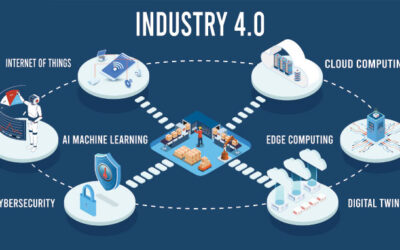Manufacturing jobs focus on creating new products from raw materials or individual components. This process can be chemical, physical, or mechanical, but the key is that a new product is made. While most forms of product creation fall under manufacturing, construction is considered a separate industry. Manufacturing jobs cover a wide range of industries, from producing prepackaged food and beverages to making computers, electronics, and clothing. Roles such as bakers, printers, tailors, furniture builders, and woodworkers are all part of the manufacturing sector. While many manufacturers work in factories, mills, or plants, some may work in labs depending on the nature of their work.
The skills required for manufacturing can vary based on the specific job, but strong critical thinking abilities are essential across the board, as manufacturers need to solve problems and think logically on the job. For more advanced roles, experience in math, science, or engineering is often necessary. Additionally, problem-solving skills are crucial, as challenges can arise during the manufacturing process. Since manufacturing is a global industry, language skills can also be a valuable asset. Some specialized roles, such as baking or tailoring, may require specific training or qualifications, while entry-level positions, like those on assembly lines, typically have fewer prerequisites.
High Paying Manufacturing Jobs
Lean Consultant
Salary Range: $147,500 – $182,500 per year
Lean consultants specialize in helping businesses reduce waste and improve efficiency. They work across a variety of industries, observing daily operations, analyzing financial records, and collaborating with management to understand business goals. Once they assess the company’s current state, lean consultants offer tailored recommendations and design programs to enhance processes and cut costs. To succeed in this role, aspiring lean consultants should gain significant experience in the specific industry they wish to focus on.
What does a Lean Consultant do?
A Lean Consultant helps organizations improve efficiency, reduce waste, and streamline processes by applying Lean principles. Lean is a methodology focused on maximizing value for customers while minimizing resource usage. The main duties of a Lean Consultant include:
- Process Analysis: Reviewing current business operations to identify inefficiencies or areas of waste.
- Implementation of Lean Practices: Introducing and applying Lean techniques such as value stream mapping, Kaizen (continuous improvement), and 5S (workplace organization) to improve workflows.
- Training and Coaching: Educating employees and management on Lean principles, tools, and methodologies to ensure sustainable improvements.
- Performance Monitoring: Setting up metrics to measure improvements, track progress, and ensure long-term success.
- Problem-Solving: Identifying root causes of inefficiencies and working with teams to implement solutions that lead to better productivity and reduced costs.
Lean Consultants work across various industries, including manufacturing, healthcare, and services, helping organizations become more agile and cost-effective.
Electrical Power Engineer
Salary Range: $84,000 – $175,000 per year
Electrical power engineers are responsible for the efficient operation of power systems. Their duties include designing components like generators, transformers, and transmission lines, and ensuring power stations distribute energy effectively. This role requires at least a bachelor’s degree in electrical engineering, state licensure, and hands-on experience with power systems, covering both alternating and direct current systems.
What does an Electrical Power Engineer do?
An Electrical Power Engineer designs, develops, and maintains systems for generating, transmitting, and distributing electricity. Their primary responsibilities include:
- System Design: Creating electrical systems for power generation (such as plants), transmission lines, and distribution networks to ensure efficient energy flow.
- Equipment Specification: Selecting and specifying electrical components like transformers, circuit breakers, and generators, ensuring they meet technical and safety standards.
- Power Distribution: Ensuring the reliable distribution of electricity from power plants to homes, businesses, and industries, managing the flow and stability of electrical grids.
- Problem Solving and Troubleshooting: Diagnosing and addressing issues in power systems, whether related to load demands, equipment failures, or grid disturbances.
- Regulatory Compliance: Ensuring all electrical systems comply with local, national, and international safety and engineering standards.
- Sustainability Initiatives: Working on renewable energy projects such as solar, wind, or hydroelectric systems to promote greener power solutions.
Electrical Power Engineers work in utilities, manufacturing, construction, and energy sectors to ensure the safe, reliable, and efficient supply of electrical power.
Principal Electrical Engineer
Salary Range: $139,000 – $170,000 per year
Principal electrical engineers manage electrical projects, from designing devices to overseeing installation and inspections. They lead teams of junior engineers, ensure work is completed on time and within budget, and serve as the liaison between the engineering team and upper management. They also provide updates on project status to ensure deadlines are met.
What does a Principal Electrical Engineer do?
A Principal Electrical Engineer is a senior-level engineer responsible for overseeing and managing electrical engineering projects. Their duties typically include:
- Project Management: Leading electrical design and development for large-scale projects, ensuring they are completed on time and within budget.
- Design and Development: Designing electrical systems and components, such as circuits, devices, and power systems.
- Supervision: Managing and guiding a team of junior engineers and technicians, overseeing their work, and providing mentorship.
- Quality Assurance: Ensuring that all electrical installations meet safety standards and regulatory requirements.
- Collaboration: Acting as a liaison between the engineering team and upper management or clients, providing regular updates on project progress and resolving any issues that arise.
- Inspections: Overseeing the inspection of electrical work to ensure it is properly installed and functions as expected.
- Estimating Costs: Providing cost estimates for electrical projects, including materials and labor.
- Problem Solving: Troubleshooting issues during the design, development, or installation phases to ensure projects run smoothly.
In this role, they combine technical expertise with leadership, helping ensure that complex electrical systems are designed and implemented successfully.
Principal Process Engineer
Salary Range: $130,000 – $169,500 per year
Principal process engineers analyze company processes in production or manufacturing settings to identify improvements. They develop schedules, budgets, and guidelines, oversee teams of engineers, and collaborate to optimize processes. They also use engineering software to design simulations and review data to drive continuous improvement. A bachelor’s degree in engineering is required for this role.
What does a Principal Process Engineer do?
A Principal Process Engineer is a senior-level engineer who oversees and optimizes processes within a production or manufacturing facility. Their key responsibilities include:
- Process Analysis and Improvement: Evaluating current processes to identify inefficiencies or areas for improvement and developing strategies to optimize production.
- Team Leadership: Leading and supervising a team of engineers and technicians, ensuring they work efficiently and meet project goals.
- Process Design: Creating or improving production processes to increase efficiency, reduce waste, and ensure high-quality output.
- Technical Expertise: Applying advanced engineering principles and software to design and simulate process improvements.
- Collaboration: Working closely with management and other departments to ensure that process changes align with overall company objectives and budgets.
- Project Management: Developing schedules, budgets, and guidelines for process improvement projects, and ensuring they are completed on time and within cost limits.
- Data Analysis: Reviewing data and performance metrics to monitor process improvements and ensure continuous enhancement.
- Compliance and Safety: Ensuring that all processes meet industry regulations and safety standards.
In this role, a Principal Process Engineer focuses on improving the efficiency, cost-effectiveness, and quality of manufacturing or production systems, driving overall operational success.
FPGA Engineer
Salary Range: $130,000 – $167,000 per year
FPGA (Field Programmable Gate Array) engineers use Hardware Description Language (HDL) to design and test the programming of integrated circuits. These circuits can be reprogrammed after manufacturing to fit various applications. FPGA engineers are responsible for developing these configurations and integrating multiple FPGAs to create more complex systems. Their work is applied across multiple industries and technologies.
FPGA Engineer duties
An FPGA Engineer designs, develops, and tests Field Programmable Gate Arrays (FPGAs), which are specialized integrated circuits that can be programmed after manufacturing to perform specific functions. Key responsibilities of an FPGA Engineer include:
- FPGA Design: Using Hardware Description Language (HDL), such as VHDL or Verilog, to program the FPGA for specific tasks or system functions.
- Testing and Debugging: Developing tests to ensure that the FPGA operates as expected, debugging issues, and making necessary adjustments to the design.
- System Integration: Working with other engineers to integrate the FPGA with other hardware components to form a larger, more complex system.
- Optimization: Ensuring that the FPGA design is efficient in terms of speed, power consumption, and performance.
- Collaboration: Working closely with software, hardware, and systems engineers to ensure that the FPGA fits well within the broader project goals.
- Documentation: Writing technical documentation on the design, programming, and maintenance of the FPGA for future use by engineers and technicians.
- Industry Application: Applying FPGA technology in various fields, such as telecommunications, aerospace, automotive, medical devices, and consumer electronics.
FPGA Engineers play a crucial role in developing customizable and efficient hardware solutions, and their work can be found in a wide range of industries that require specialized hardware configurations.
System Safety Engineer
Salary Range: $113,000 – $164,500 per year
System safety engineers develop and refine safety protocols for large systems, ensuring that failures in one part do not compromise the entire system. For example, in aerospace, they work to prevent subsystem failures from endangering critical systems like life support. This role is essential in fields such as civil engineering, aeronautics, software, and power plants.
What does a System Engineer do?
A System Safety Engineer is responsible for ensuring that engineering systems are designed and operated in a way that minimizes risk and ensures safety throughout their lifecycle. Their key responsibilities include:
- Risk Assessment: Identifying potential safety hazards in systems, processes, or products and evaluating the risks associated with those hazards.
- Safety Standards Compliance: Ensuring that designs, processes, and operations comply with industry safety regulations, standards, and best practices.
- Failure Analysis: Analyzing system failures or incidents to determine their root causes and prevent future occurrences.
- Design Reviews: Working closely with design and engineering teams to integrate safety into system designs from the beginning, ensuring that safety is a fundamental part of development.
- Testing and Validation: Conducting safety tests and simulations to validate the safety of systems under various operating conditions.
- Documentation: Maintaining detailed records of safety analyses, risk assessments, and compliance activities for regulatory audits and internal use.
- Continuous Improvement: Recommending and implementing safety improvements to reduce risk in existing systems and operations.
System Safety Engineers work across industries such as aerospace, defense, automotive, energy, and manufacturing, where safety is a critical concern.
Laser Engineer
Salary Range: $64,500 – $161,500 per year
Laser engineers focus on designing, operating, and optimizing laser systems, often in specialized fields like optics. They monitor laser performance, troubleshoot issues, and develop documentation for the operation and maintenance of laser equipment. This role requires electrical engineering qualifications and experience with laser technologies. They may also be responsible for training technicians in proper laser system use and maintenance.
What does a Laser Engineer do?
A Laser Engineer is responsible for designing, developing, and maintaining laser systems and technology. Their primary duties include:
- Laser System Design: Creating and designing laser devices or systems for specific applications, often involving optics and advanced technologies.
- Testing and Optimization: Testing laser systems to ensure they perform correctly, troubleshooting any issues, and optimizing them for better efficiency and performance.
- Maintenance and Repair: Monitoring laser equipment and performing regular maintenance to keep systems running smoothly. They also repair any issues that arise.
- Research and Development: Conducting research to improve existing laser technology or develop new laser systems for use in various industries.
- Documentation and Training: Writing detailed instructions for operating and maintaining laser equipment, and training technicians or other engineers in the proper use of the systems.
- Industry Applications: Working in fields such as manufacturing, medical devices, telecommunications, defense, and research, where lasers are used for tasks like cutting, measuring, and scanning.
Laser Engineers play a crucial role in ensuring that laser technologies function effectively and are adapted for a variety of innovative applications across different industries.




